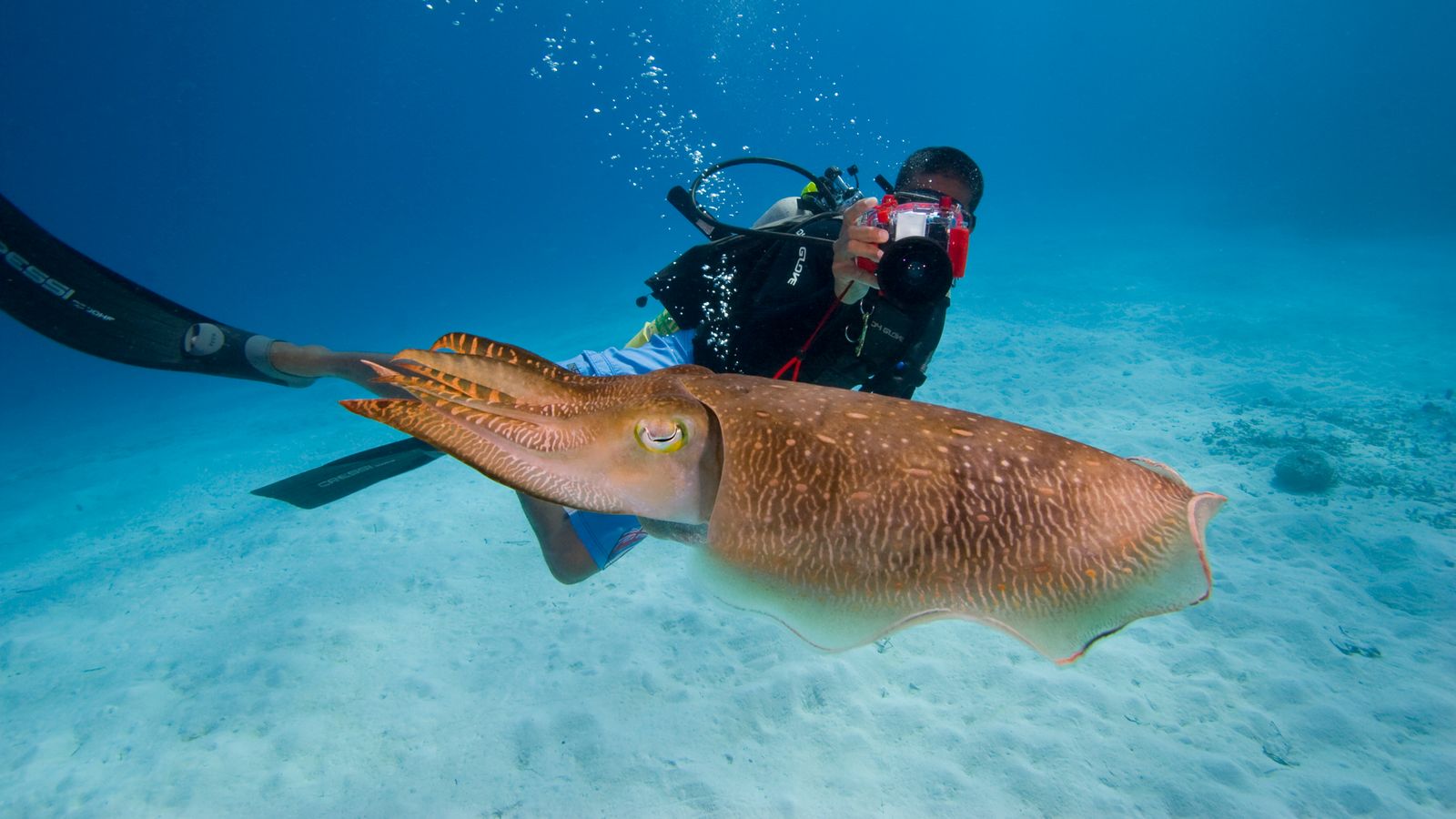Cuttlefish can remember events right up to their last few days of life, according to a new study.
The research is thought to be the first evidence of an animal whose memory of specific events does not deteriorate as it gets older.
Memory tests were conducted on 24 common cuttlefish – half of them were 10-12 months old (so not quite adults), while the others were between 22 and 24 months (equivalent to a human in their 90s).
• The fish were trained to approach a location in their tank marked with a black and white flag
• They were taught that two of their regular foods were on offer at certain flag-marked locations
• At one location, the flag was waved and they were offered a piece of king prawn – a meal they’re not so keen on
•Every three hours for four weeks, they were offered live grass shrimp from a different spot with another flag. They like grass shrimp much more
• The two feeding locations were different each day to make sure the fish weren’t just learning a pattern
• The cephalopods watched to see which food appeared first and they could then work out which feeding spot was best each time a flag was waved
The researchers watched to see how well the cuttlefish could remember which food would be available.
Results indicated that, while human episodic memory – remembering experiences from times and places – tends to decline with age, the cuttlefish memory does not.
This is thought to be due to the hippocampus – something that human brains have and cuttlefish brains do not.
For a cuttlefish, the vertical lobe of the brain is linked to learning and memory and this does not deteriorate until the last few days of life.
Dr Alexandra Schnell, of the University of Cambridge’s department of psychology, first author of the paper, said: “Cuttlefish can remember what they ate, where and when, and use this to guide their feeding decisions in the future.
“What’s surprising is that they don’t lose this ability with age, despite showing other signs of ageing like loss of muscle function and appetite.”
Dr Schnell said: “The old cuttlefish were just as good as the younger ones in the memory task – in fact, many of the older ones did better in the test phase.
“We think this ability might help cuttlefish in the wild to remember who they mated with, so they don’t go back to the same partner.”
The study was done by researchers from the University of Cambridge, the Marine Biological Laboratory in Woods Hole, Massachusetts, and the University of Caen, France.
It is published in Proceedings Of The Royal Society B: Biological Sciences.






















